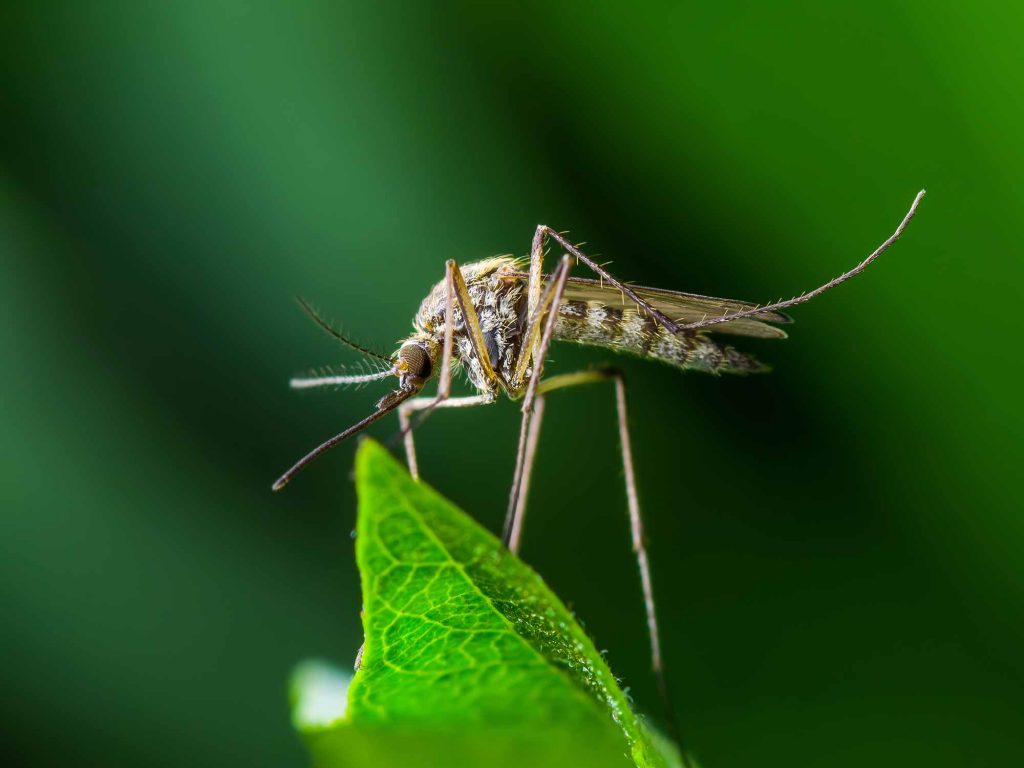The Ins and Outs of Heartworm Prevention
 Most pet owners are familiar with or have heard about heartworm disease. Heartworms are mosquito-borne, blood-dwelling parasites that make their home in the pulmonary artery, a major blood vessel between the heart and lungs, wreaking havoc on the cardiovascular systems of dogs and cats.
Most pet owners are familiar with or have heard about heartworm disease. Heartworms are mosquito-borne, blood-dwelling parasites that make their home in the pulmonary artery, a major blood vessel between the heart and lungs, wreaking havoc on the cardiovascular systems of dogs and cats.
Thankfully, we have many safe, effective options available for our pets that can almost eliminate the chance of infection when properly administered. You probably give your dog or cat a heartworm preventive as recommended by our veterinarians at Lone Tree Veterinary Medical Center. Since heartworm preventives are commonly misunderstood, we’re going to zero in on the heartworm preventives we use, what they do, and why administering them correctly matters for them to work properly in preventing heartworm disease.
The Cycle of Life
As with any parasite, understanding how to prevent it begins with understanding its lifecycle. And, understanding the lifecycle of the heartworm, Dirofilaria immitis, is particularly important when trying to get a handle on how heartworm prevention actually works.
The cycle begins when a mosquito seeking a blood meal bites a dog that is infected with heartworm disease. The infected dog’s blood contains microscopic larvae (also called microfilaria), which the mosquito ingests.
When the infected mosquito bites another dog, the heartworm larvae are transmitted into this new host. These larvae reside in the tissues underneath the skin for 1 to 2 months before moving into the dog’s bloodstream. Once there, the developing larvae continue to grow over the course of 4 to 5 months and reach maturity by 7 to 9 months.
Although adult heartworms reside primarily in the pulmonary artery, they extend into the heart, lungs and surrounding blood vessels where they can live for up to 7 years, if the infection is left untreated. During this time, these areas will become clogged with worms up to 12 inches long as they continue to grow and multiply. Left untreated, heartworm disease can cause terrible pain and suffering, and eventually be fatal.
Preventives Don’t Stop Infection
When we think about heartworm prevention, it is often thought that a preventive will stop an infection from even happening. In truth, a heartworm preventive will not stop a pet from being infected at the time it is bitten by an infected mosquito. A pet on heartworm prevention bitten by an infected mosquito will, in fact, have live heartworm larvae transmitted into its tissues. It’s what happens after this occurs that determines if this infection will develop into heartworm disease.
How Preventives Actually Work
There are two major types of heartworm preventives — monthly preventives and the 6-month injectable preventive. Because they work differently in preventing heartworm disease, let’s take a closer look at what this means.
- Monthly Preventives — Monthly preventives come in two forms – oral and topical. Examples are Interceptor Plus, Heartgard Plus, and Revolution. They work to eliminate infections acquired during the previous 30 days by actually deworming the pet, which kills the larvae and prevents their progression into the bloodstream where the larvae would mature and multiply. This is why it is so important to not miss giving your pet its monthly preventive treatment, as the medication is at its peak effectiveness within this 30 day time frame.
Do note that monthly heartworm prevention is only effective against new larvae for the first 30 – 45 days that they are present. If two months of the preventive are missed and any larvae are present, the infection will have progressed to more advanced stages of heartworm disease and more aggressive treatment will be required to cure the pet.
- Six-Month Injectable Preventive — The six-month injectable preventive, such as ProHeart 6, allows the slow release of preventive medication over a 6 month duration, killing any new larvae that enter the body during that time. However, because this is a lower dose medication that releases over time, it is not potent enough to kill larvae already present in the pet’s body, prior to the injection. This is why Proheart 6 is only administered after the pet has had a heartworm test that shows a negative result (no heartworm is present). It is also why a follow up test to ensure the pet is still clear of the disease is required prior to administering the second 6-month injection.
Heartworm Prevention and Your Pet
When it comes to protecting your pet against heartworms, consistency is key. While no product is 100% effective, when administered as directed, heartworm prevention is very good at stopping those heartworm larvae from maturing.
Once a heartworm infection has progressed beyond the tissue stage and is detectable on a heartworm test (this takes about 6 months from the time of infection), a series of much more aggressive injections is required to eliminate the worm. Unfortunately, this course of treatment can be costly and it can take several months to cure the pet of the disease.
A note about cats: There is no treatment for cats infected with heartworm disease, and although some can live with the disease, they may suffer severe complications, including, damage to their respiratory system along with other areas of the body, if the worms migrate. In areas where heartworm disease is common, prevention has become increasingly important for cats.
The American Heartworm Society recommends testing annually in order to identify infection early and screen for failures in prevention. Since heartworm disease can have virtually no symptoms early on in its course and early detection is key for successful treatment of the disease, we require annual testing for heartworm disease prior to prescribing heartworm preventives, even for pets already on a preventive.
We are always happy to discuss your pet’s care with you. Please don’t hesitate to call us with questions or concerns about your pet’s heartworm prevention program. It’s our pleasure to help keep our pet patients safe and healthy!



